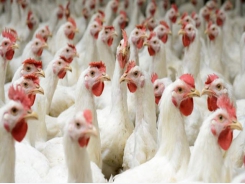Broiler post-hatch super pre-starter boosts performance

Broiler producers are usually encouraged to test the feed and evaluate the results on their own, which is good advice and should follow an informed decision.
Feeding a post-hatch special diet remains a controversial topic. Not only because the feed is expensive, by the nature of the special ingredients used in formulating it, but also because there are few quantitative studies. As such, broiler producers are usually encouraged to test the feed and evaluate the results on their own. Of course, this is never a bad piece of advice, but it should follow an informed decision and not replace it.
Towards such an informed decision comes a research report I noticed during the European Symposium on Poultry Nutrition (ESPN) event in early May 2017 in Spain. Researchers from Belgium fed 30 grams of a special post-hatch feed or a standard starter feed to day-old broilers, followed by a normal feeding program. There were 12 replicates per treatment, and 30 broilers per pen. The high number of replicates gives this trial special importance.
A special feed offered immediately post-hatch improves the life-time performance of broilers.
At 35-days old, broilers that had received the special post-hatch feed, upon placement in the house, were 5 percent heavier having consumed 3.8 percent more feed (resulting in slightly over 1 percent improved feed efficiency ratio) over standard-fed broilers. Thus, this trial supports the notion that a special feed offered immediately post-hatch improves the life-time performance of broilers. In this study, we can use the 5 percent higher growth as a fixed point in our cost-benefit calculations.
Có thể bạn quan tâm
Phần mềm

Phối trộn thức ăn chăn nuôi

Pha dung dịch thủy canh

Định mức cho tôm ăn

Phối trộn phân bón NPK

Xác định tỷ lệ tôm sống

Chuyển đổi đơn vị phân bón

Xác định công suất sục khí

Chuyển đổi đơn vị tôm

Tính diện tích nhà kính

Tính thể tích ao hồ




 Using classic poultry nutrition against coccidiosis
Using classic poultry nutrition against coccidiosis  Chicken animal care guidelines certified by audit organization
Chicken animal care guidelines certified by audit organization